Many groups support abortion in Missouri, but no single petition has unanimous backing
After the Missouri Supreme Court decided Monday evening not to hear cases involving abortion ballot initiatives, advocates in support of those measures now will decide which to move forward with in the signature collection process.
Dr. Anna Fitz-James, in conjunction with Missourians for Constitutional Freedom, filed 11 different initiative petitions seeking to enshrine access to abortion in the state constitution.
Of those, the ballot language describing six of them was challenged in court, with judges rewriting new language, omitting what the court found to be politically charged and biased words produced by Secretary of State Jay Ashcroft.
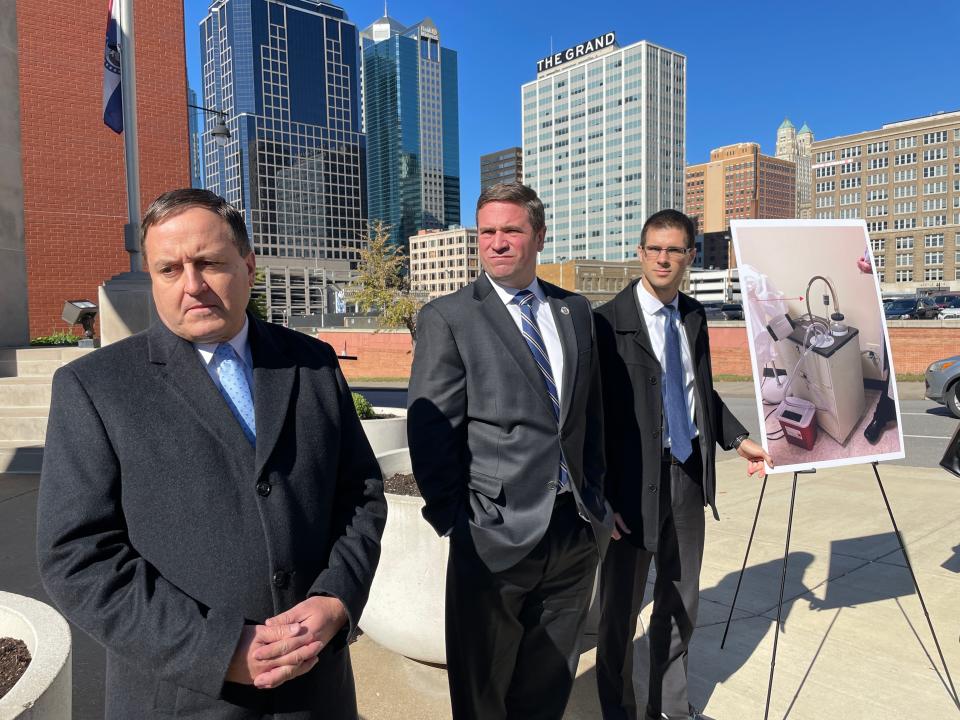
From these six, the group must choose one proposal to circulate in order to collect the signatures of registered Missouri voters required to place the issue on either the August or November 2024 ballot. Groups supporting restore abortion access in the state await a decision on which of those six will move forward.
“It's too early right now to know which petition will go forward, but Abortion Action Missouri is committed to the most expansive policy possible,” said Maggie Olivia, senior policy manager at Abortion Action Missouri, a grassroots pro-choice advocacy organization.
An additional six initiative petitions were filed by Jamie Corley, director of the Missouri Women and Family Research Fund, which have been pitched as a middle ground between the state’s current abortion ban and petitions from Fitz-James, most of which seek to legalize abortion up to 24 weeks after conception or until fetal viability, with exceptions for the health and safety of the mother.
“It would enshrine access to abortion in the first 12 weeks of pregnancy, protect access to contraception and give women immunity from criminal prosecution,” Corley said. “For the exception of fatal fetal abnormality, rape and incest, you can get an abortion through viability, which is about halfway through pregnancy.”
Ashcroft's ballot summary language for the six petitions from Fitz-James was rewritten by Cole County Circuit Court Judge Jon Beetem and revised by Missouri Western District Appeals Court Judge Thomas Chapman, in the opinion he wrote.
The six petitions differ in the details, but all ask to "establish a right to make decisions about reproductive health care, including abortion and contraceptives, with any governmental interference of that right presumed invalid," while removing the abortion ban, regulating reproductive health care for the health of the patient, and prohibiting government discrimination.
Many expect time, funding challenges in collecting signatures
Although Corley has also challenged ballot summary language and the fiscal note summary in court, that has not stopped her from picking one petition to move forward with and collect signatures.
“We’re challenging them in court. That does not prohibit us from gathering signatures,” Corley said.
Early in the litigation process of challenges to ballot summary language on Fitz-James’ initiative petitions, Beetem and Assistant Attorney General Jason Lewis pointed to case law allowing signatures to be collected, even when the ballot language could be changed by the court.
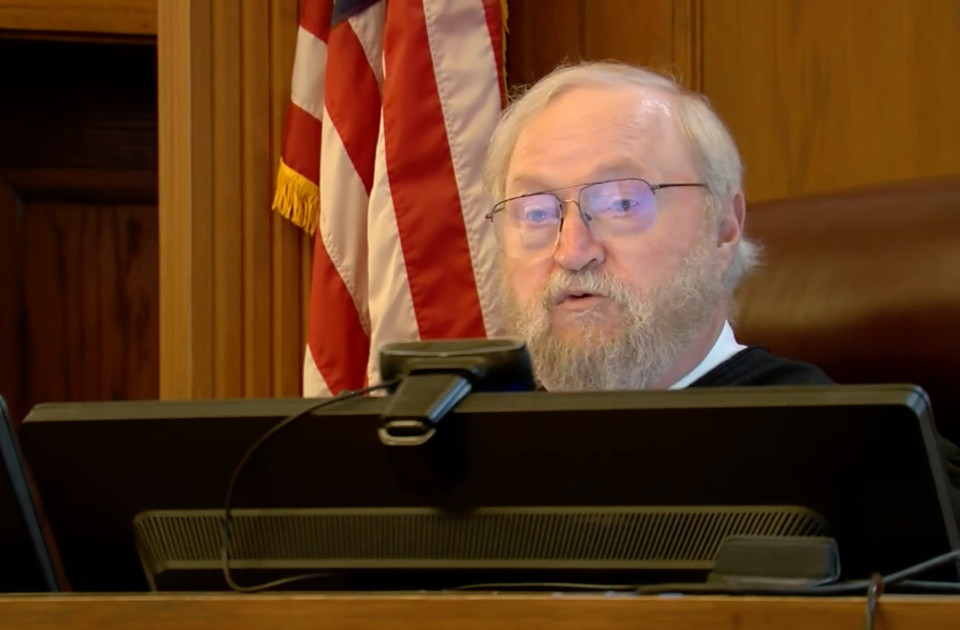
Lewis cites Missouri Supreme Court case Boeving v. Kander from 2016 as evidence that signatures count even if a ballot summary statement is changed.
“It's not going to affect the signature-gathering process,” Lewis said in an early August hearing. “So while time is of the essence in some degree, because of the 180-day clock, this is not the kind of case where anyone is up against the gun, or the proponent is prevented from doing anything right now.”
In the same hearing, Tony Rothert, an attorney for the ACLU of Missouri who represented Fitz-James, was unsure about that idea, as 11 versions of the ballot initiative were filed, but ballot summary language for six of those were contested in court.
“As a pragmatic point, given the summary statement language, and not knowing what it will eventually be, proponents are in a position of not knowing which petition to collect signatures on without some guidance as to what it's going to be,” Rothert said in the hearing.
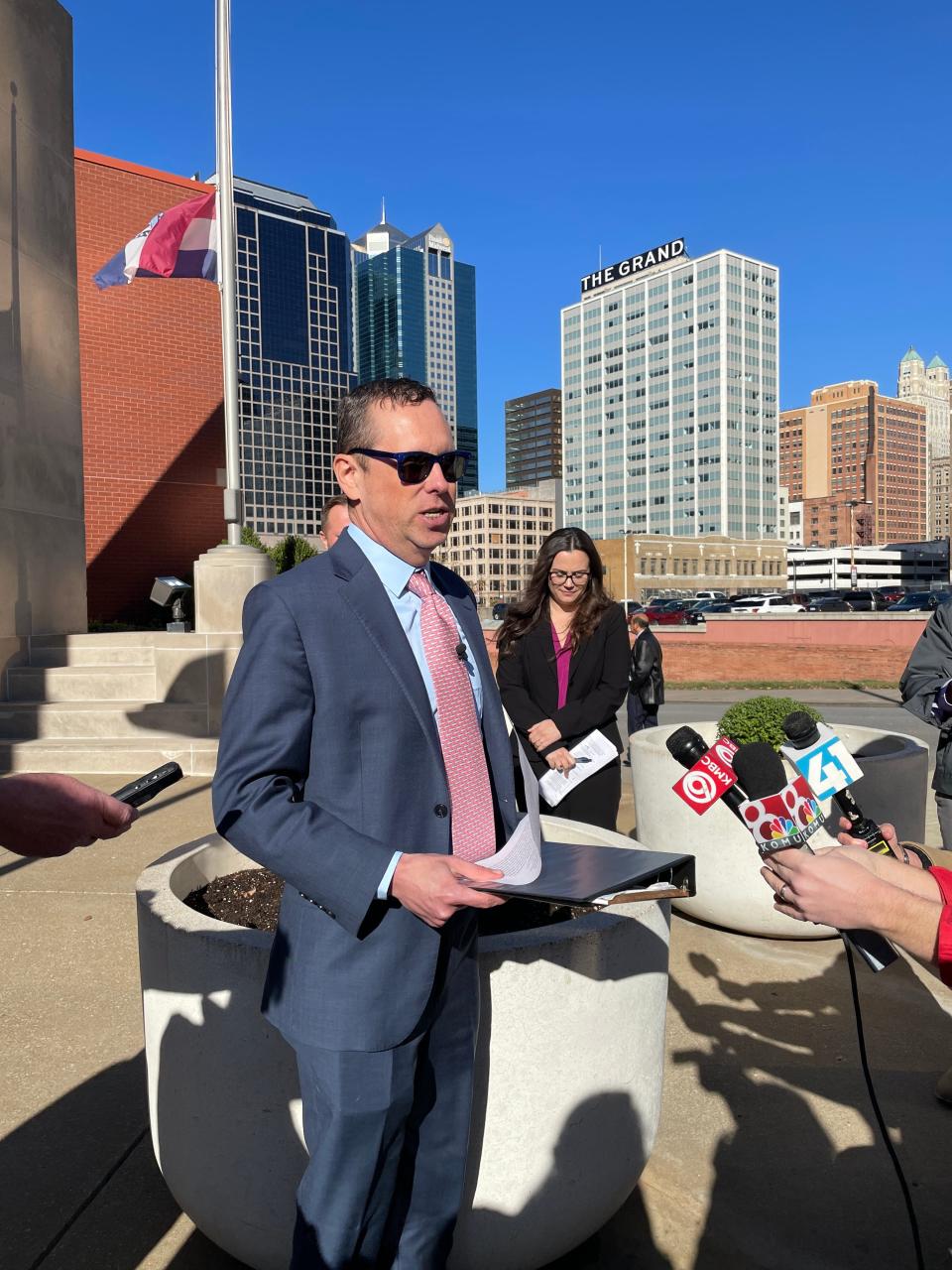
Exactly 171,592 valid signatures from registered Missouri voters are needed to place any ballot initiative on the measure. This is calculated per the specifications from the Secretary of State’s office, which requires 8% of voters from six of Missouri’s eight congressional districts to sign a petition seeking to place measures on the ballot.
However, advocates are generally advised to collect far more signatures than the bare minimum, in case some of the signatures are not valid.
Signature collection can be an expensive endeavor, especially when it must be conducted over such a short timeframe. Advocates will have from now until early May to collect the necessary signatures.
Ballotpedia estimates it cost about $9.38 per signature collected nationally in 2023. That means it could cost over $1.6 million to gather the necessary signatures to get on the 2024 Missouri ballot.
“We know that this is going to be a really heavy lift and will take a lot of work from organizations and individuals all across the state and across the country, frankly,” Olivia said. “But, we are encouraged by the level of excitement that we're seeing both in state and out state.”
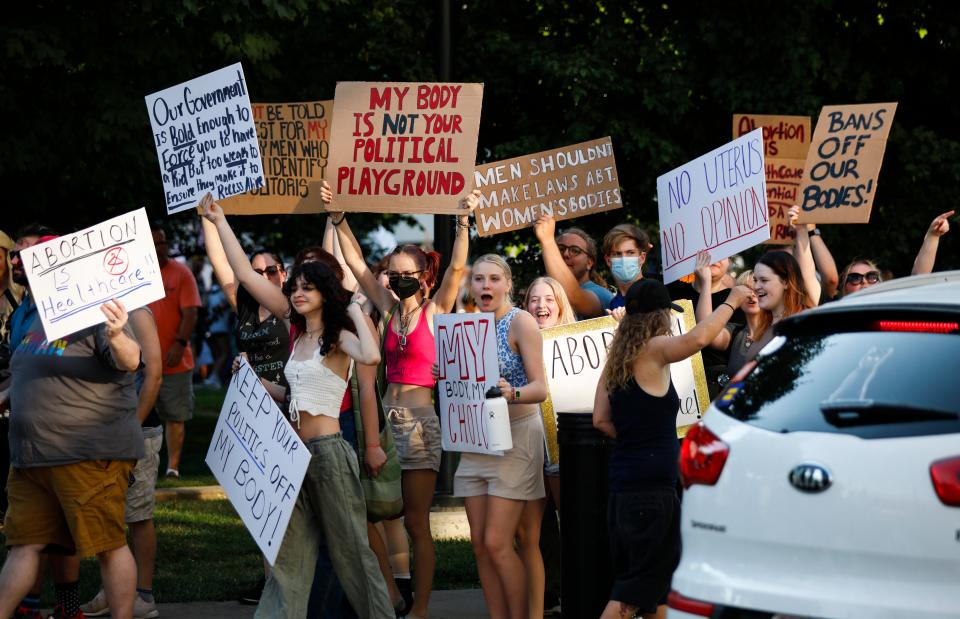
Many activists saw their spirits bolstered following a victory by abortion activists in Ohio, where 56.62% of voters affirmed their desire to see abortion rights enshrined in their state constitution.
Ohioans United for Reproductive Rights raised more than $39.2 million this year through mid-October and spent $26.2 million. In a Mother Jones' article, Rothert acknowledged potential funding challenges, but said that there wouldn’t be $30 million for a campaign that wouldn’t win.
However, Samuel Lee, director of Campaign Life Missouri, thinks that comparing Missouri to Ohio in this sense is like apples to oranges.
“I don't think it means a whole lot, because I think the circumstances are very different,” Lee said. “The abortion-rights groups in Ohio were organized. They were united in getting it passed. They're not here in Missouri.”
More: Caucuses are replacing the Republican presidential preference primary. What to know
Initiative petitions from both groups face opposition
Despite the fact that many groups in Missouri want to see abortion rights restored in the state, few are in agreement with each other, with many openly attacking measures from Corley and Fitz-James.
Missouri Abortion Fund, which raises money to ensure Missourians seeking safe, legal abortion services can access them, has publicly denounced any initiative petition that includes language referencing fetal viability.
Only one of the 17 filed so far, a petition by Fitz-James, would guarantee the right to abortion without the limit of fetal viability. The group did not say whether they supported all elements of this petition.
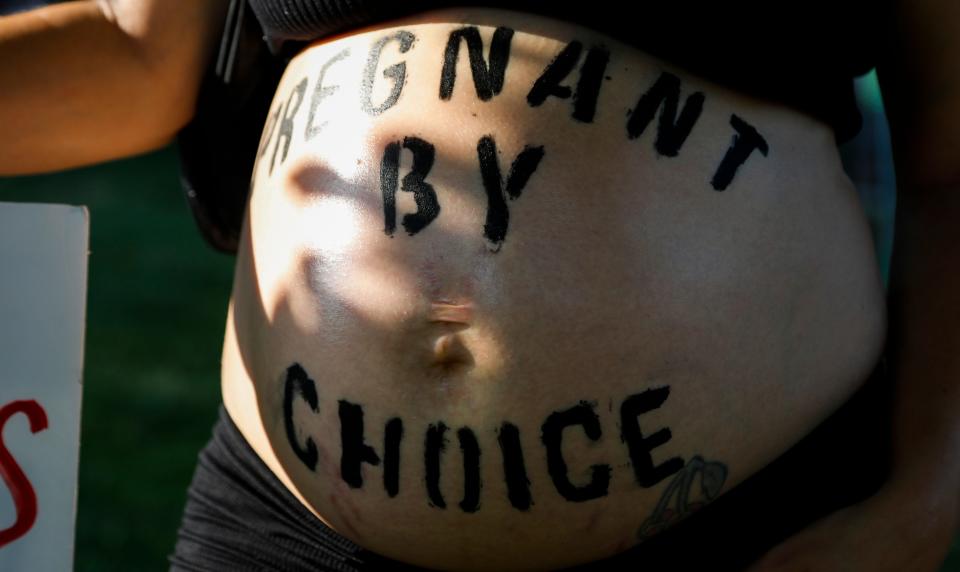
Olivia feels that Corley’s petitions will not do what people may think they will, if passed into law. While abortions will be legal in some cases, such as rape, incest or sexual assault, when reported to a crisis hotline, she said it would create additional barriers for abortion seekers and survivors in the state, which the campaign would have known had it consulted experts in the field.
“They would allow for the very same politicians that voted to ban abortion in our state to be able to campaign on some sort of false compassion for survivors of sexual and domestic violence, and people who really need access to abortion care,” Olivia said.
On a personal level, Olivia, who is a survivor of sexual violence, feels personally offended by Corley’s proposals, which she feels are out of touch with people who have those lived experiences and experts who study it.
“It is frankly really offensive to see people like the Corley campaign using folks like myself, survivors of sexual violence, to advance their own personal agenda without actually collaborating with any experts in the field or any people impacted by sexual violence in terms of what this measure could and would do to survivors across the state,” Olivia said.
Corley, who was a former Republican staffer, appeared on NBC Nightly News on Tuesday, speaking in support of the ballot initiative that has been chosen for signature collection. In the same segment, Colleen McNicholas, chief medical officer of Planned Parenthood of St. Louis and Southwest Missouri, expressed desires for more expansive abortion access.
“The idea that we would limit access at an arbitrary gestational age really does say that we aren't paying attention to what's actually the lived reality and what's happening on the ground right now,” McNicholas said.
She was asked by the NBC reporter whether access to abortion up to 12 weeks, which is what Corley’s petition would guarantee, was better than nothing.
“I’m gonna just say, ‘No, it is not,’” McNicolas said.
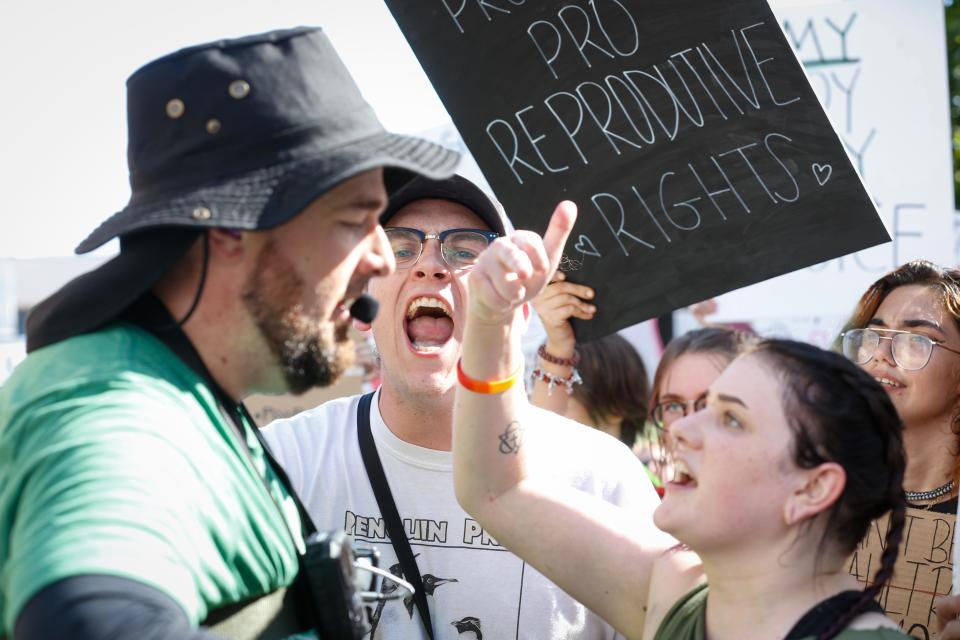
The Archdiocese of St. Louis issued communications to local Catholics urging them to encourage voter registration and decline to sign any petitions reinstating abortion rights.
A myriad of anti-abortion organizations have come out against the measures, as expected. The group Susan B. Anthony Pro-Life America issued a release opposing the measure from Fitz-James, but has not issued any such release against petitions filed by Corley.
“These ballot measures are meant to deceive in order to radically transform Missouri into an abortion-on-demand state,” said Sue Liebel, the group’s state affairs director, in the release.
After Corley filed her petitions in late August, Missouri Right to Life sent out an action alert encouraging supporters to submit comments against her petitions to the Secretary of State. It included talking points from the group to list when submitting comments.
A review of the comments obtained by Corley through the Missouri Sunshine Law shows that the majority of comments were sourced either directly or mostly from this group. Corley’s six petitions received about 125 comments.
Alternatively, a review of comments submitted against the 11 petitions from Fitz-James shows fewer identical responses, but roughly eight times the number of comments opposing the measure, with more than 1,000 comments submitted.
Corley takes this as a sign that her petitions have a broader appeal to Missourians open to restoring abortion access in the state.
“Twelve weeks is a middle ground,” Corley said. “There are a lot of pro-life people who are comfortable with that number actually. And there are a lot of pro-choice people who maybe they would want more but they are okay with 12 If the alternative is none.”
Lee of Campaign Life Missouri sees history in part repeating itself as abortion-rights proponents fail to find consensus. He is reminded of a 1990 Missouri ballot initiative that sought to enshrine abortion rights into the state constitution to prohibit further changes by the state legislature.
In the 1989 U.S. Supreme Court decision in the case Webster v. Reproductive Health Services, the court upheld restrictions devised by state legislators that restricted access to abortion in 1986.
More: Initiative petitions came under fire in 2023. Experts forecast more of the same in 2024.
Following this, an initiative petition was launched in 1990 by Judith Widdicombe that would have asked voters if they wanted to restrict the state legislature from making additional restrictions on abortion access. These measures did not have the support of other abortion-rights groups in the state, which thought it too premature for an initiative petition.
“It has similarities to Jamie Corley’s petition, in that it was promoted as a compromise that it would have repealed what the legislature passed in ‘86, which is the subject of the Webster decision, but allowed for abortion laws prior to that to stay in place,” Lee said.
Widdicombe faced attacks from both sides of the abortion debate, and her supporters were eventually unable to collect the necessary signatures to get the measure on the ballot. Now, in 2023, the division between abortion-rights groups feels oddly familiar to Lee in the context of the past.
“This is sort of like deja vu all over again,” Lee said.
This article originally appeared on Springfield News-Leader: Missouri abortion activists divided on best path forward

